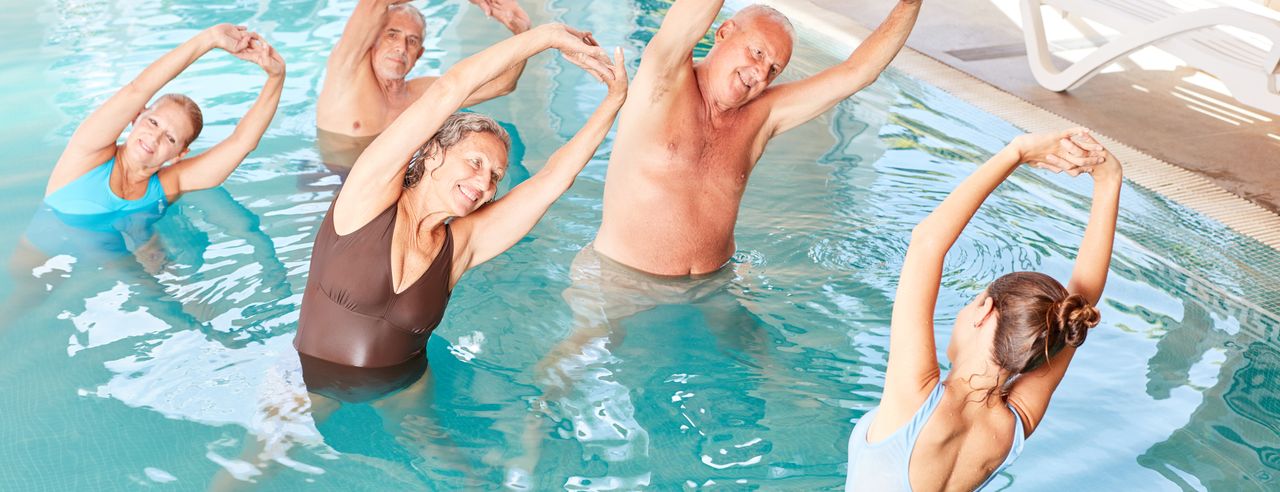
Study on aqua aerobics & combined training for type 2 diabetes
Rodrigo Sudatti Delevatti et al.
August 2022
Diabetes
Healing & thermal therapy
The aim of the study from the Universidade Federal do Rio Grande do Sul was to compare the effects of aquatic aerobic training and combined (aerobic and more resistance) training on glycemic control and other cardiometabolic outcomes in patients with type 2 diabetes.
Patients were randomized into three groups: an aquatic aerobic exercise training group (AERO, n = 19; 57.5 [7.4] years; 9 [47%] women), an aquatic combined exercise training group (COMBI, n = 19; 60.9 [7.4] years; 10 [53%] women), and an active practice control group (n = 19; 58.6 [9.7] years; 10 [53%] women). Each group completed 3 sessions per week (50 minutes each) for 15 weeks. The primary endpoint was glycosylated hemoglobin, while secondary endpoints were insulin resistance markers, lipid profile, systemic inflammation, renin concentration, blood pressure, physical activity, and sitting time.
Glycosylated hemoglobin was reduced in all groups (P = 0.021), although the changes were more pronounced in the AERO (-0.36%) and COMBI (-0.44%) than in the active control group (-0.26%). The lipid profile was changed similarly in all groups. Diastolic blood pressure and renin concentration were also reduced in all groups, with a greater reduction in renin concentration in the AERO (-17.7 uIU/mL) and COMBI (-15.1 uIU/mL) groups than in the control group (0.2 uIU/mL). Fasting insulin levels, triglycerides, C-reactive protein, systolic blood pressure, walking time and sitting time on weekends were not changed.
Both AERO and COMBI resulted in similar improvements in glycemic control and some cardiometabolic risk factors in patients with type 2 diabetes.
The most important information on the study at a glance
- Indications
- Diabetes
- Institution
- School of Physical Education, Physiotherapy and Dance, Universidade Federal do Rio Grande do Sul (UFRGS), Porto Alegre, RS, Brazil
- Title
- Study on aqua aerobics & combined training for type 2 diabetes
- Brief description
- The study shows: Aquatic aerobic & combination training improved blood glucose control and renin concentration in type 2 diabetes.
- Original title
- Aquatic Aerobic and Combined Training in Management of Type 2 Diabetes: The Diabetes and Aquatic Training Study (DATS): A Randomized Clinical Trial
- Link to the study
- https://pubmed.ncbi.nlm.nih.gov/35902075/
Suitable trips for this study topic
You might also be interested in
Caroline Maindet et al.
August 2022
The study shows that a spa treatment significantly improves pain, fatigue and severity of symptoms after 6 months.
Cancer rehabilitation
Healing & thermal therapy
Stephen Rajan Samuel et al.
March 2019
The study shows that 11 weeks of training improves performance, quality of life and reduces fatigue in head and neck cancer patients.
Healing & thermal therapy
Metabolism / Stomach / Intestines
Hiroaki Takeuchi et al.
August 2020
The study shows that drinking deep sea water relieves constipation and promotes intestinal health.